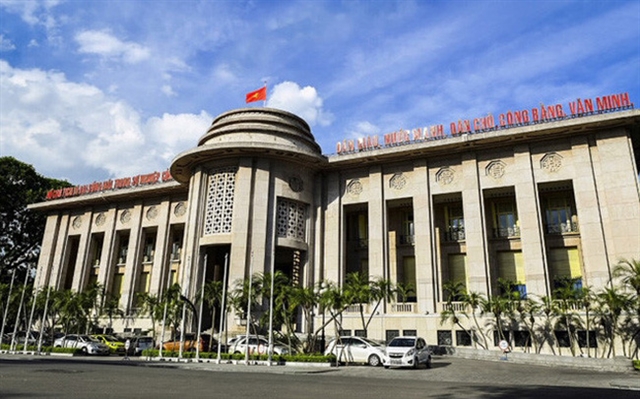The Central bank announced it could adjust monetary policies, including credit growth and incentives, to cope with the COVID-19 pandemic.

The State Bank of Viet Nam (SBV) announced it could adjust monetary policies, including credit growth and incentives, in the remaining months of the year to cope with the COVID-19 pandemic.
Under a recent directive, SBV Governor Le Minh Hung said the COVID-19 outbreak would continue to be unpredictable, which could push the global economy into a deeper recession and have a heavy impact on the Vietnamese economy due to its deep economic integration.
Under the difficulties, Hung requested the banking industry follow domestic and foreign economic developments to forecast and propose effective solutions in order to ensure market liquidity, control inflation and further cut interest rates.
Banks need to target lending for production and business, especially sectors and fields prioritised by the Government, such as agriculture businesses, firms producing goods for export, small- and medium-sized enterprises, start-ups, enterprises operating in auxiliary industries and hi-tech enterprises, while continuing to strictly control credit for potentially risky sectors such as real estate, securities, as well as Build-Operate-Transfer (BOT) and Build-Transfer (BT) projects in transport.
He also asked the SBV’s Credit Department to consider adjusting 2020 credit growth targets for banks that have met the SBV’s requirements.
The SBV allocated the credit growth limit for all credit institutions at 10.1 per cent, lower than the 13 per cent set earlier in the year due to the impact of the COVID-19 pandemic. However, some commercial banks have also asked the central banks to expand their credit growth.
According to experts, though banks’ income from services has improved in recent years, 70-90 per cent of banks’ profits still come from credit activities, so it is understandable that banks expected the SBV to extend the credit threshold.
Experts agreed with the banks’ proposal to extend credit growth. Banking expert Nguyen Tri Hieu said he supported the proposal as it would help maintain economic growth, especially in times when many economies, including Viet Nam, were at risk of slowing down.
Under the directive, the Governor required bank authorities to coordinate with relevant ministries and agencies in implementing procedures to use State capital to increase charter capital for State-owned Agribank.
The authorities would also consider procedures to increase charter capital for other State-owned banks, including VietinBank and Vietcombank, through the payment of dividends in shares.
Hung said the central bank would closely monitor developments of the foreign currency market to proactively manage the exchange rate flexibly and appropriately.
The SBV would intervene in the exchange rate when necessary to stabilise the foreign exchange market, contributing to the country’s macroeconomic stability, Hung noted.
It would also closely follow the fluctuations of global and domestic gold prices, not to have it affect macroeconomic stability. — VNS





